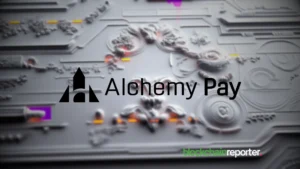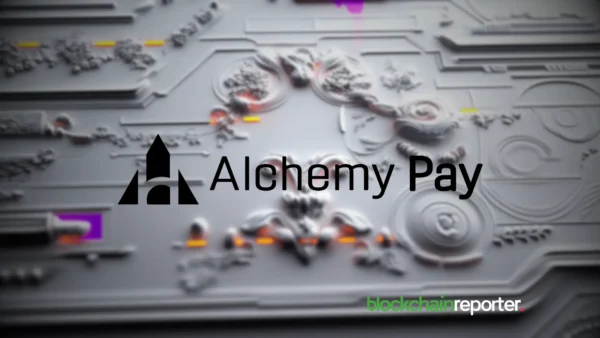
Blockchain, a revolutionary technology behind the success of cryptocurrencies, has the potential to support sustainability efforts. With its features such as decentralization, transparency, and traceability, blockchain can enhance sustainability practices and promote eco-friendly initiatives. In this article, we will explore the various ways blockchain can be utilized to support sustainability.
How Can Features of Blockchain Support Sustainability Efforts
Decentralization
Decentralization is a key feature of blockchain that eliminates the need for intermediaries or central authorities. In terms of sustainability, this feature can be applied to the energy sector. Decentralized renewable energy systems can be created using blockchain to allow individuals to sell excess energy to their peers, thereby reducing reliance on centralized power grids and increasing the use of renewable energy sources.
Transparency and Traceability
Transparency and traceability are important features of blockchain that can ensure accountability in sustainable business practices. By recording every transaction on a blockchain network, businesses can ensure that their suppliers follow sustainable practices. This can be particularly useful in industries such as agriculture, where traceability can help ensure that products are grown using sustainable methods.
Immutable Records
Another feature of blockchain that can support sustainability is immutability. The ability to create immutable records of transactions means that environmental impact assessments can be accurately recorded and verified. This ensures that businesses adhere to sustainability standards and regulations, which in turn promotes eco-friendliness.
Smart Contracts
What comes next, how can features of blockchain support sustainability efforts? Smart contracts are self-executing contracts that are automatically enforced when certain conditions are met. This feature can be used in carbon offsetting programs, where smart contracts can be used to automate the process of buying and selling carbon credits. This will help reduce the carbon footprint of businesses and promote sustainability.
Distributed Ledger Technology
Distributed ledger technology (DLT) is the foundation of blockchain, and it can be used to create eco-friendly initiatives. DLT can be utilized to create decentralized waste management systems, where waste can be tracked and recycled efficiently. This promotes a circular economy and reduces the environmental impact of waste disposal.
Sustainable Supply Chain Management
Sustainable supply chain management is an essential aspect of promoting sustainability. By using blockchain, supply chain transparency can be achieved, and sustainable practices can be enforced throughout the supply chain. This ensures that products are sourced ethically and sustainably, and businesses can be held accountable for their environmental impact.
Renewable Energy Tracking
Renewable energy tracking is another area where blockchain can be useful. By recording the production and consumption of renewable energy on a blockchain network, individuals and businesses can have access to accurate information about the energy they use. This promotes the use of renewable energy sources and reduces the carbon footprint of businesses.
Conclusion
In conclusion, blockchain can be a powerful tool in supporting sustainability efforts. With its features such as decentralization, transparency, and traceability, blockchain can enhance sustainable practices and promote eco-friendly initiatives. By using blockchain in sustainable supply chain management, renewable energy tracking, and waste management, businesses can reduce their environmental impact and promote a sustainable future.
You should now have an idea of how can features of blockchain support sustainability efforts. The implementation of blockchain in sustainability efforts brings several benefits such as reducing environmental impact, promoting social responsibility, and increasing accountability. With lockchain, businesses can ensure that their practices are eco-friendly and sustainable, contributing towards a better future for the planet.
READ MORE:
Bitcoin For Social Good: Adding More Value To The Legacy Blockchain
Crypto.com Partners with Climeworks to Advance Carbon Management and Sustainability Efforts
OpenEarth Foundation and Chainlink Collaborate to Launch a Carbon-Pricing Oracle
Controlling Bitcoin Mining Hashrate: Report on Core Scientific 545M & Riot Blockchain 215M Earning
Richard Stallman Speaks Cryptocurrency Blockchain GNU Taler Encryption
Frequently Asked Questions
How can features of Blockchain support sustainability efforts
Blockchain can support sustainability efforts by enhancing sustainable practices and promoting eco-friendly initiatives. Its features such as decentralization, transparency, and traceability can be utilized in various ways.
What is decentralization in blockchain technology?
Decentralization is a key feature of blockchain that eliminates the need for intermediaries or central authorities. It can be applied to the energy sector to create decentralized renewable energy systems and reduce reliance on centralized power grids.
What are smart contracts in blockchain technology?
Smart contracts are self-executing contracts that are automatically enforced when certain conditions are met. They can be used in carbon offsetting programs to automate the process of buying and selling carbon credits and reduce the carbon footprint of businesses.
How can blockchain be used in renewable energy tracking?
Blockchain can be used in renewable energy tracking by recording the production and consumption of renewable energy on a blockchain network. This promotes the use of renewable energy sources and reduces the carbon footprint of businesses.
What are the benefits of implementing blockchain in sustainability efforts?
Implementing blockchain in sustainability efforts brings several benefits such as reducing environmental impact, promoting social responsibility, and increasing accountability. Businesses can ensure that their practices are eco-friendly and sustainable, contributing towards a better future for the planet.









